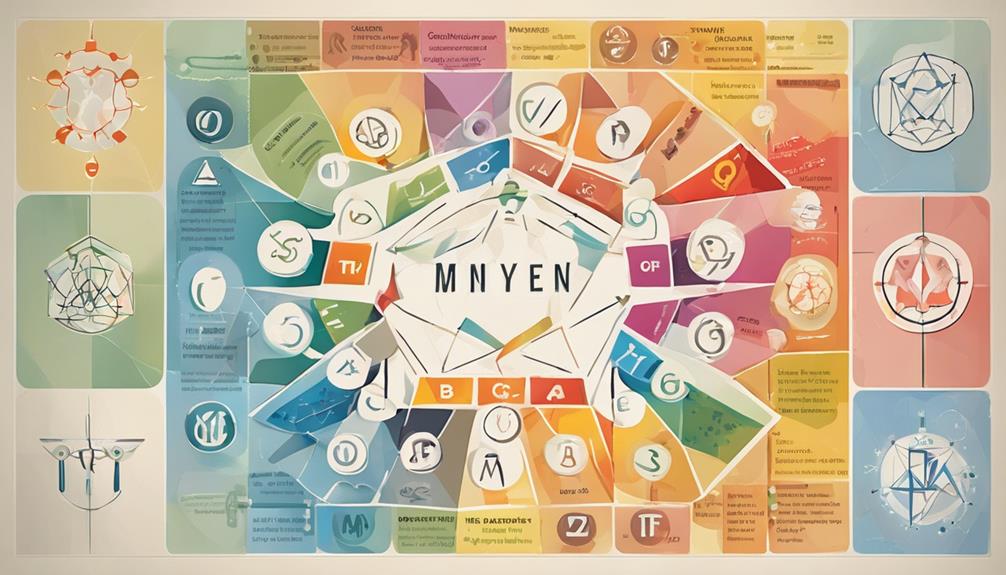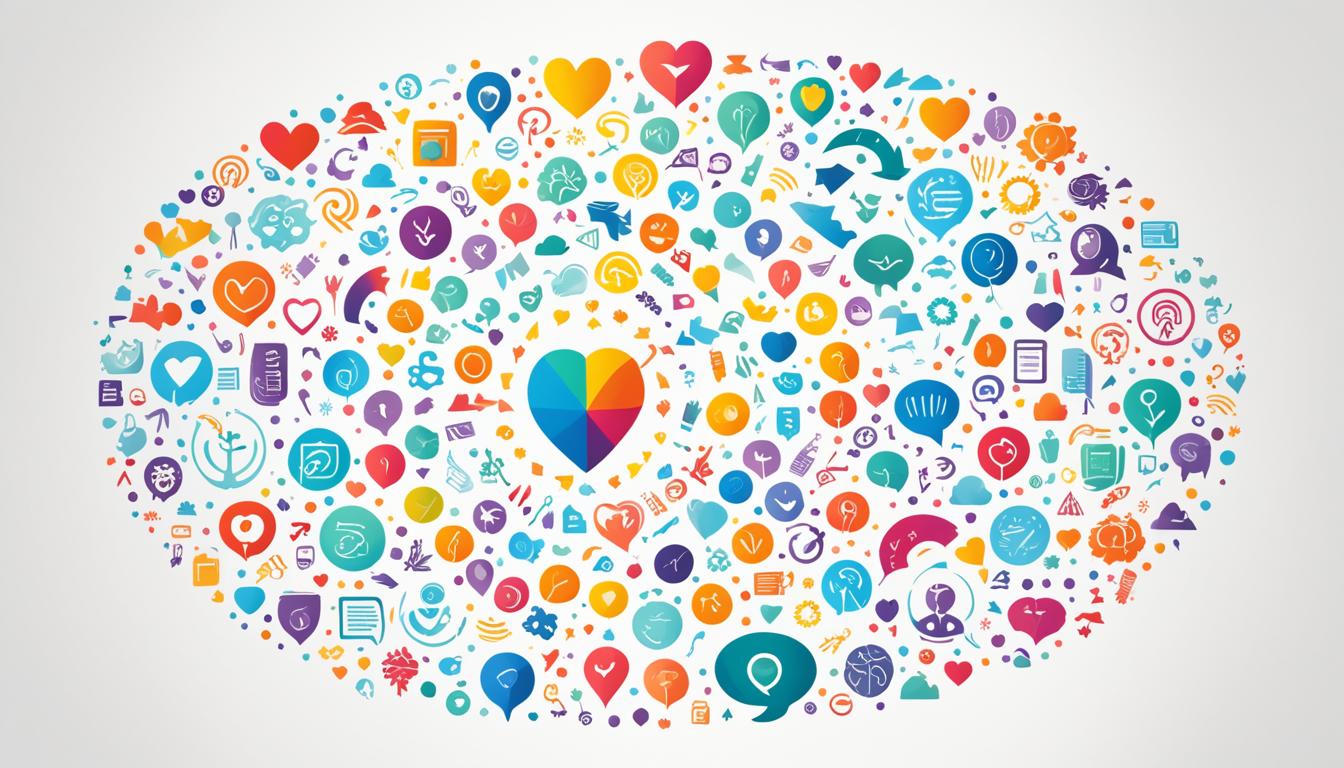As we begin to explore the world of personality assessments, like adventurers navigating uncharted waters, we are presented with a variety of choices that offer to provide understanding into the intricacies of human behavior.
Each test, from the classic Myers-Briggs Type Indicator to the modern CliftonStrengths, offers a distinct perspective on personality traits and behaviors.
But what lies beneath the surface of these tests? What secrets do they hold that could reshape our understanding of ourselves and those around us?
Join us on this journey as we unravel the mysteries of these top personality tests, unlocking a world of self-discovery and personal growth.
Key Takeaways
- Myers-Briggs, Enneagram, Big Five, and CliftonStrengths are top personality tests.
- Understanding unique traits aids in personal growth, relationships, and professional success.
- Online tests offer deep insights but may lack nuance and are not for hiring decisions.
- Expert panel reviews costs and recommendations to determine the best assessments.
Myers-Briggs Type Indicator (MBTI)
The Myers-Briggs Type Indicator (MBTI) is a renowned personality assessment tool that classifies individuals into 16 distinct personality types, aiding in understanding communication styles and decision-making processes. This tool plays a crucial role in helping individuals recognize their strengths, weaknesses, and preferences, ultimately leading to improved personal development and interpersonal relationships.
Enneagram

Introduction to the Enneagram personality test reveals nine distinct personality types that offer deep insights into individual behaviors and motivations.
- The Enneagram aids in understanding core fears and desires.
- It highlights patterns of behavior and emotional responses.
- This test assists in personal growth and self-awareness.
- By identifying dominant traits, it helps improve relationships and communication skills.
The Enneagram delves into the complexities of human nature, providing a nuanced view of personality that goes beyond surface characteristics. Understanding these nine interconnected personality types can be a powerful tool in navigating interpersonal dynamics, fostering empathy, and promoting personal development.
Big Five
Exploring the Big Five personality assessment reveals five key dimensions that provide a comprehensive understanding of individual traits and behaviors. These dimensions include openness, conscientiousness, extroversion, agreeableness, and neuroticism. Each dimension offers valuable insights into how a person interacts with the world and approaches various aspects of life.
Understanding where one falls on each spectrum can assist in personal development, career choices, and relationship dynamics. The Big Five assessment is particularly useful for enhancing self-awareness and improving social interactions. By delving into these fundamental dimensions, individuals can gain a deeper understanding of themselves and others, fostering empathy and effective communication.
The Big Five serves as a valuable tool for personal growth and professional success.
CliftonStrengths

Upon understanding the fundamental dimensions of the Big Five personality assessment, transitioning to explore the CliftonStrengths assessment reveals a unique approach to identifying and harnessing individual strengths for personal and professional development.
- Personalized Insights: CliftonStrengths provides a detailed report on your top strengths, offering a personalized understanding of what makes you unique.
- Career Development: By pinpointing your natural talents, this assessment aids in aligning your strengths with your career path, enhancing job satisfaction and performance.
- Team Building: Widely used in corporate settings, CliftonStrengths promotes teamwork by helping team members recognize and leverage each other’s strengths.
- Self-Empowerment: Understanding and embracing your strengths can boost confidence, resilience, and overall well-being, fostering personal growth and success.
DiSC Profile
The DiSC Profile categorizes individuals into four main personality traits, enhancing communication and teamwork within various contexts. By identifying Dominance, Influence, Steadiness, and Conscientiousness, this assessment tool provides valuable insights into how individuals approach tasks, interact with others, and navigate challenges.
Understanding these core aspects of personality can lead to improved collaboration, conflict resolution, and overall team dynamics. The DiSC Profile not only aids in recognizing one’s strengths but also highlights areas for personal development and growth.
Whether in professional settings, educational environments, or personal relationships, utilizing the DiSC Profile can foster empathy, effective communication, and a deeper appreciation for diverse perspectives. Embracing the nuances of each personality trait can ultimately lead to more harmonious interactions and successful outcomes.
Frequently Asked Questions
Can Personality Tests Accurately Predict Future Behavior or Career Success?
Yes, personality tests like the Myers-Briggs Type Indicator or the Big Five can provide valuable insights into behavior and career success predictors.
While not definitive, they offer a framework for understanding individual traits and tendencies.
By recognizing patterns in personality, one can make informed decisions that align with strengths and motivations.
These tests serve as tools for self-awareness and personal development, enhancing the potential for future success in various aspects of life.
Are There Any Potential Negative Consequences of Relying Too Heavily on Personality Test Results?
When relying heavily on personality test results, we risk oversimplifying complex human behavior. These tests provide valuable insights but shouldn’t be the sole determinant of our actions.
It’s crucial to balance test outcomes with personal experiences and individual growth. We must remember that we’re dynamic beings, capable of change and adaptation.
Embracing the nuances of our personalities beyond test results allows for a more holistic understanding of ourselves and others.
How Do Different Personality Tests Compare in Terms of Cultural Sensitivity and Applicability Across Diverse Populations?
When comparing personality tests for cultural sensitivity and applicability across diverse populations, it’s crucial to consider factors like language, social norms, and values.
Tests like the Big Five and CliftonStrengths may offer broader applicability due to their focus on universal traits and strengths.
However, tests like the Enneagram and DiSC Profile could be more culturally sensitive by exploring individual motivations and communication styles.
Understanding these nuances helps ensure accurate and respectful assessments for a diverse range of individuals.
Are There Any Ethical Considerations to Keep in Mind When Using Personality Tests in Various Settings, Such as Therapy or Hiring Processes?
When using personality tests in settings like therapy or hiring, ethical considerations are crucial. It’s essential to ensure these assessments are culturally sensitive, accurately interpreted, and used ethically.
Safeguarding individuals’ privacy, avoiding stereotyping, and maintaining transparency in how results are utilized are key ethical principles. Adhering to professional guidelines, obtaining informed consent, and prioritizing individuals’ well-being over organizational interests are vital for ethical practice in employing personality tests.
Is There Ongoing Research or Debate Within the Field of Psychology Regarding the Validity and Reliability of Specific Personality Tests, and if So, What Are Some Key Points of Contention?
In ongoing psychology research, debates about the validity and reliability of specific personality tests are prevalent. Key points of contention include the consistency of results over time, cross-cultural applicability, and the influence of situational factors on test outcomes.
While some argue for the robustness of certain assessments in predicting behaviors, others highlight the limitations in capturing the complexity of human personalities accurately. These debates drive continuous refinement and advancement in the field.
Conclusion
In conclusion, the world of personality assessments offers a wealth of insights into our behaviors and tendencies.
One interesting statistic to note is that over 80% of Fortune 500 companies use the Myers-Briggs Type Indicator in their hiring and development processes, highlighting the widespread recognition and value of these assessments in the professional world.
As we continue to explore these tools, it’s essential to approach them with a critical eye and a focus on personal growth and understanding.









